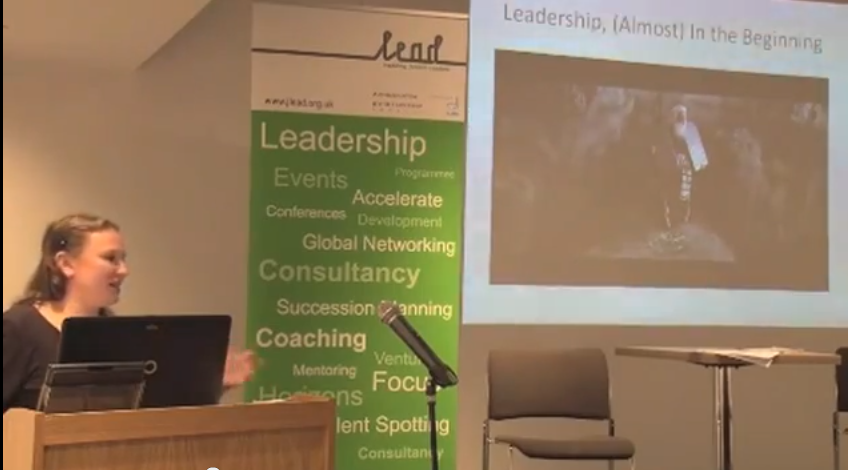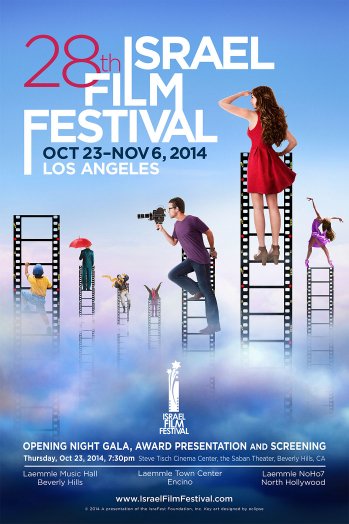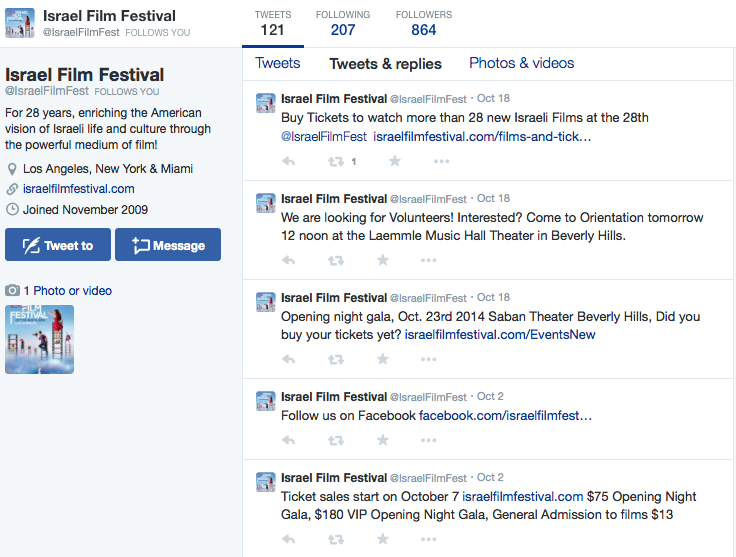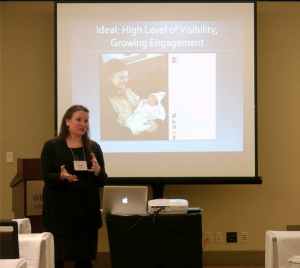
Facebook’s “Legacy Contact” Option
0“When I met you it was love at first sight — you know me inside and out, and I trust you like no other. Won’t you be my Facebook legacy contact?”
— Valentine’s Day cards of the future (an @EstherK prediction)
Since my mother died in May 2011, I’ve written extensively (including on Modern Loss) about the digital footprints that our loved ones leave behind. These legacies can be painful or funny, or sometimes both. Over the past few years, Facebook has offered “a basic memorialized account which was viewable, but could not be managed by anyone.” Many never transitioned the pages of the dearly departed into any kind of internet Valhalla, because it’s just too final, or sometimes, because we didn’t know how.
But right before Valentine’s Day this year, the tidings arrived from the Facebook newsroom — now people can treat the content they’ve created in their digital lifetime as a legacy, and designate an appropriate guardian for that legacy. Introducing the “Legacy Contact”:
[…] people choose a legacy contact — a family member or friend who can manage their account when they pass away. Once someone lets us know that a person has passed away, we will memorialize the account and the legacy contact will be able to:
1) Write a post to display at the top of the memorialized Timeline (for example, to announce a memorial service or share a special message)
2) Respond to new friend requests from family members and friends who were not yet connected on Facebook
3) Update the profile picture and cover photo
If someone chooses, they may give their legacy contact permission to download an archive of the photos, posts and profile information they shared on Facebook.
Other settings will remain the same as before the account was memorialized. The legacy contact will not be able to log in as the person who passed away or see that person’s private messages. Alternatively, people can let us know if they’d prefer to have their Facebook account permanently deleted after death.
When I saw this, I gasped with a combination of glee and horror. Leaving aside that last spine-chilling last sentence — “permanently deleted after death” — as a social media consultant and writer who is very active in the social web, this was an acknowledgment that what we’re doing in the Facebook space goes beyond sharing weird memes, incendiary articles and photos of the same kittens or babies in slightly different positions. And our digital footprint — here, specifically on Facebook — can continue to create impact even after we’re gone.
But how do you select someone to manage the (potentially) thousands of posts you may have made over Facebook in your lifetime? The people who know the medium best might be the best suited to the task, but those people may not be your relatives or your dearest friends. Do you choose someone with the skills to manage content or with the emotional commitment and capacity to tend to that online space forever more? Is it too much to hope for both in one trustworthy human package? Finding a life partner is hard enough…now you have to find an additional Mr. or Ms. Right to partner with you even after your life? (Someday, there’ll be an app for that.)
Has the race to be the designated legacy contact begun? Is this going to be a new source of business for social media consultants (“we’ll manage your web presence while you’re alive, and maintain it after you’re gone”)? Will it be a source of contention in families the way inheritance of physical assets is, or will it turn into a game of “not-it”? (Feeling particularly sorry in advance for whoever I select as my legacy contact, and apologizing to you all in advance in case you’re sixty years in the future, reading this after I’m gone because I’ve selected you.) And what happens to my content when my designated legacy contact dies? Does their legacy contact inherit the burden/responsibility/petri dish of managing my online content, or does my content go to the next person in a succession order that I’ll designate in my internet last will and testament?
Whatever legal, logistical or emotional questions are involved, Facebook is acknowledging that the content we create in the digital space is uniquely ours, and that when we pass on from this planet, we leave these assets behind. While not as important as a finding cure for cancer or parenting a child who might one day bring peace and healing to the world (here’s hoping), content makes an impact and leaves a legacy — and as we take responsibility for selecting an executor for our will or a guardian for the things that mean the most to us, it makes complete sense to designate a trustworthy representative who will treat your online assets with care and respect.
And so my search begins. ☺
(A version of this post appeared on Medium.)

Social Media Case Study: Unsolicited Advice for the Israel Film Festival
0When I lived in New York, one of the focal points of my entertainment year was the Israel Film Festival. My friends and I, pre-Hulu, pre-Netflix, pre-much-of-anything-other-than-mainstream-modes-of-entertainment, eagerly anticipated the annual display of Jewiness-on-film meets Zionism, the Jewish geography and Hebrew immersion experience that was the Festival. We all knew when the Festival was happening, where it was happening and what was playing. I remember that most of the shows were sold out well in advance, because of the collective New York Israel-loving-and-missing community, many of us in our twenties. We planned outings, doing dinner or drinks first at a local bar or on several occasions, sinking into New York cliche with frozen hot chocolate at Serendipity, which had the convenience of being nearby the theater.
And all of that was before social media.
Since I moved to LA, I’ve either been out of town for the IFF (my fault, but usually because I’m in Israel), or have been in town but have been unaware that it’s happening. This doesn’t seem possible, as I spend most of the day online and connected to the Jewish world. I follow the IFF on Twitter, and subscribe to their FB page, as well as email blasts from the Jewish Journal and the IAC. This year, one of my friends posted about it on Facebook. But if not for that, I might have woken up someday next week and learned that I had missed it yet again.
Theoretically, in this age of hyper-connectivity, I should have been overwhelmed with communications regarding the IFF, both in advance and once it was underway. So why wasn’t I? Part of the problem is that communications are overwhelming generally – since I rarely pick up a copy of the Jewish Journal and read only selected articles online, it’s not the mainstream media that’s the problem as much as it is the evolving way we consume that information. And it might be, in part, because their social media presence is so minimal and they are failing to mobilize the audience (and their sponsors) as brand ambassadors and PR agents.
Because Facebook is an inexplicable mystery when it comes to assessing the potential for organic reach without advertising (and because they should be advertising to LA Jews and don’t seem to be), let’s take a look at the Twitter account for @israelfilmfest.
Their account, since November 2009, has tweeted 121 times. They have under 1000 followers. Most of the “people” they’re “following” on Twitter aren’t people at all: they’re other Film Festivals (who are not likely to share, retweet or publicize the IFF’s efforts) and organizations (some partners, who should be sharing/retweeting/publicizing, but don’t seem to be). And – most disturbingly – only have tweeted 5 times in the month of October, precisely when tweets should have been, if not fast and furious, then laden with information, tempting offers and tidbits about the festival’s films. The website links to a few pieces about the Festival, but imagine the reach of those pieces expanded by social media…
This advice is unsolicited. But because I love the Festival, I’m sharing some tips about how to do it better next year (or at the other two outings of the festival, upcoming in Miami and New York….but don’t ask me when those are or were, since that info doesn’t seem to be on the IFF website).
1. Use your assets in promoting the festival. The filmmakers. The content of their work. Their actors. People in LA who are Israeli or support Israeli culture. Local kosher/Israeli establishments. Festival partners. Organizations who aren’t financial sponsors, but could be content partners. And the organizers should have shot wide in terms of the angles that could be explored for coverage. For instance:
- People who are in the know about Israeli music get giddy at the fact that Meir Fenigstein founded and runs the Festival, it’s like being in the same room with one of the Beatles. Why isn’t there an article about Poogy/Kaveret, or about the music of Israeli films?
- Fenigstein told a story at the screening of “The Go-Go Boys” about Menahem Golan’s role in suggesting and sponsoring the first IFF. Why wasn’t that a first-person piece (or an interview) in the Jewish Journal, Variety, THR, The Writer’s Guild, the Academy of Motion Picture Arts & Sciences, or EW?
- Cannon Films, the Golan/Globus production company that became huge in the 80s and is the focus of The Go-Go Boys,” producing Death Wish, Bloodsport & Breakin’, must have inspired dozens of filmmakers (in addition to Eli Roth, who is featured in the film). Maybe pitch Quentin Tarantino on writing something about his favorite Cannon Films outing, or invite Eli Roth to introduce the film at the Festival? (They may have, but these are the types of ideas I mea when I say “shooting wide…” in regard to PR.)
2. Enhance your social media presence. Ideally, hire someone (or designate a web-savvy volunteer) to coordinate a multi prong social media approach, including (at minimum) Facebook, Twitter & Instagram. But I know sometimes Jewish nonprofits can’t allocate those funds, in which case less ideal but still a plan, hire a consultant to create a plan for you to implement before during and after the festival. And that’s #3…
3. Create a content plan, including a commitment to Tweeting regularly leading up to and during the festival. In addition to varying the types of content posted (trivia, Q&A about the festival or its films, short video clips, shoutouts to filmmakers, links to purchase etc), this content plan should also clearly identify the goals of each week’s social media outreach. Which week will be primarily about promotion and identifying potential partners/sponsors? Which week will be about getting people in the seats? Which week will be about celebrating the people who come and the energy on-site? (That there are NO PHOTOS on the Photos tab on the website as of November 2 – a week into the festival with almost a week to go – is not a good sign.)
Keeping Twitter current and active on its own (or even using magical Facbeook advertising) isn’t necessarily going to sell out the festival. But today, there are so many (free or mostly free) tools that are available – why not use them?
(If the folks at the IFF want help with this next year, they can feel free to be in touch. I’ll give them a decent rate, I promise. :))
Want more posts like this one? Consider joining my new mailing list. No spam, no overwhelming emails, just the occasional conversation starter/act of self-promotion. 🙂 Sign up here…

Kicking off January With “Jewish Geography Goes Digital”
0Mid-January arrived, and with it, the RAVSAK/PARDES Jewish educators’ conference – titled “Moving the Needle,” the content contained inspiring speakers, informative panels, deep dives into practical subject matters and workshops designed to give educators a skills upgrade. I was honored to present “Jewish Geography Goes Digital” to an involved and inquisitive group of Jewish educators from across the country – the interactive skills session featured extensive dialogue with those in the room, facilitated sharing of experience using social media in an educational context, and the introduction of new tools and awareness of social media culture as a way to deepen relationships with constituents.
You can check out my presentation below (and additional presentations are available here). And remember, if you’re interested in a consultation on social media culture or tools, creative content strategy, or communications methods for the digital age, please be in touch and we can discuss the possibilities.

Video Workshop: “Leadership in the Digital Age”
0 In May, I was invited to London to speak as part of the Jewish Leadership Council’s Lead Division’s newest initiative, Leading In which was created in response to the desire and need for more leadership skills training, expressed by alumni of Lead’s programmes as well as employers within the community. The JLC, in a blog post about the program, explained:
In May, I was invited to London to speak as part of the Jewish Leadership Council’s Lead Division’s newest initiative, Leading In which was created in response to the desire and need for more leadership skills training, expressed by alumni of Lead’s programmes as well as employers within the community. The JLC, in a blog post about the program, explained:
We believe that Jewish communal leaders need both a deep understanding and knowledge of the UK Jewish Community as well as a core range of leadership skills. Leading In consists of regular bi-monthly evening sessions, open to all who are in a leadership position in the community, both lay and professional. Each session will include a leadership skills based session (a choice of three with the option to participate in a fundraising series over several sessions), an opportunity to network and a masterclass with an inspirational, visionary leader.
The event, held at the London Jewish Museum, was attended by 60 lay and professional leaders from more than 30 Jewish communal organizations. Debbie Klein, chair of JW3 (the about-to-launch Jewish Community Centre), gave the opening keynote discussing leadership tips, and participants chose from workshops like, “Inside the mind of a leader” with Jeff Wolfin, “Fundraising” with Jeff Shear (the second in the series), and my session, “Leadership in the Digital Age: Conversing, Commenting and Creating Meaningful Relationships” (available in its entirety – 1 hour, 22 minutes – below.
“Leadership in the Digital Age” – Esther Kustanowitz, May 2013

“Is the Facebook IPO Good for the Jews?” – Jewish Telegraphic Agency
0 In light of the recent IPO by social media juggernaut Facebook, the Jewish Telegraphic Agency asked me some questions about how the Jewish community uses Facebook in a piece titled “Is the Facebook IPO Good for the Jews?”
In light of the recent IPO by social media juggernaut Facebook, the Jewish Telegraphic Agency asked me some questions about how the Jewish community uses Facebook in a piece titled “Is the Facebook IPO Good for the Jews?”
The piece was picked up in a number of other locations, including The Jewish Journal and Ha’aretz.

Twitter and the College Student Population
0 At the recent JFNA General Assembly in New Orleans, I was asked to speak to a group of student journalists for a program called “Do the Write Thing.” The program features speakers from the world of Jewish leadership as well as from Jewish journalism – the session that I co-headlined (with the Jewish Agency’s Florence Broder) was about social media’s role in today’s Jewish journalism. While all of the students understood and used Facebook, and a few of them were familiar with blogs and the concept of blogging, when it came to Twitter, many of them were clueless. One of the attendees, a writer for the Binghamton University Pipe Dream, wrote a piece for that paper and noted that a junior, double-majoring in history and philosophy, politics and law, “stared blankly when asked about Twitter. ‘I barely know what it is,’ she said. ‘Something about birds?’”
At the recent JFNA General Assembly in New Orleans, I was asked to speak to a group of student journalists for a program called “Do the Write Thing.” The program features speakers from the world of Jewish leadership as well as from Jewish journalism – the session that I co-headlined (with the Jewish Agency’s Florence Broder) was about social media’s role in today’s Jewish journalism. While all of the students understood and used Facebook, and a few of them were familiar with blogs and the concept of blogging, when it came to Twitter, many of them were clueless. One of the attendees, a writer for the Binghamton University Pipe Dream, wrote a piece for that paper and noted that a junior, double-majoring in history and philosophy, politics and law, “stared blankly when asked about Twitter. ‘I barely know what it is,’ she said. ‘Something about birds?’”
While the students in the room at DTWT weren’t quite at that level of Twitter illiteracy, their lack of facility – and maybe even interest? – in the tool known as Twitter illustrates a point. Not every person who is young is active in all forms of social media. And while Facebook may be an exception, there is no one social media tool that is being used actively by all young people.
What organizations can take away from this is that although young people are involved in social media, social media is not the universal tool through which a project or organization can reach all young people. Today’s organizations must be educated about the tools that are out there, and know how to use them – but organizations need to adopt flexibility in creating their social media strategies, matching the available time and energy of their staffs to the likely payoff in each of the markets for tools like Twitter, Facebook, LinkedIn, etc.
Social media consultants can help, but so can members of your target demo. Use the tools that are out there – search Twitter and Facebook for conversations relevant to your product or program. And convene focus groups of people in the relevant demo – ask them how they prefer to get information and how they use these tools. Once you know where the people you want to reach dwell, you can know how to knock on the door.

Your “Twimprimatur,” and Other Secrets of Social Media
0 What’s a Twimprimatur? Here’s a hint: I made it up. And here’s another hint: imprimatur + Twitter. (Imprimatur literally means “let it be printed,” but here are some more definitions.)
What’s a Twimprimatur? Here’s a hint: I made it up. And here’s another hint: imprimatur + Twitter. (Imprimatur literally means “let it be printed,” but here are some more definitions.)
In July, I was interviewed by Rusty Mike Radio in Jerusalem – we went deep into blogging, Twitter, Facebook, and more. Check out the entire interview here, for insights into making these social media work better for you, as well as stories about Jewish innovation, how to make blogging into a quasi-career, and what my connection is to Madonna. And, of course, how to create your own Twimprimatur. 🙂
“Social Media Basics” Now Online!
0In April, I did the first of a three-part social media webinar series for the Jewish Communal Professionals of Southern California. Our focus in this session was an overview of social media and to begin the discussion of how social media can help Jewish non-profits strengthen their public profiles, promote their projects, and enhance their relationships with their clients/consumers/communities. I’m uploading finished presentations to Slideshare – feel free to check them out.
Are Facebook and Twitter a Fad?
0At a recent event about social media and Jewish community, I spoke on a panel with Leah Jones where we addressed what the future of these social media tools might be. More videos from this event are available on my YouTube channel.



